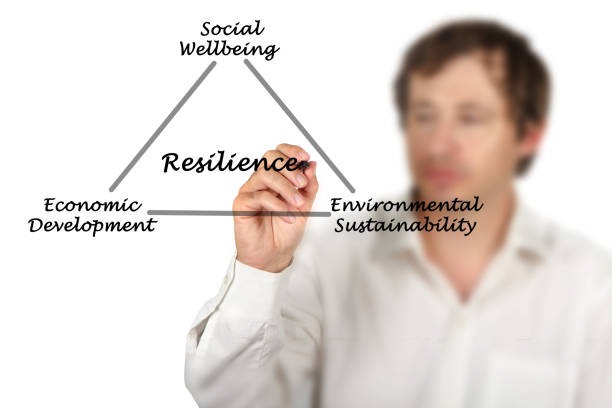Key Takeaways
- Resilience is a core component in maintaining recovery from substance use, offering hope and strength through setbacks.
- Active community engagement and practical coping tools can provide a solid foundation for achieving and maintaining lasting sobriety.
- Family involvement and educational resources foster healing for individuals and their loved ones alike.
- Relapse prevention strategies require daily practice and support from peers, professionals, and mentors.
- Ongoing education and staying informed about new developments empower those in recovery to make healthier choices.
The Power of Resilience in Recovery
Recovery from addiction is not just a matter of abstaining from substances—it’s a process of transformation that relies heavily on building resilience over time. For many, the path to healing begins with the courage to seek help and a willingness to embrace unfamiliar routines. Participating in comprehensive programs such as rehab in Egg Harbor City, NJ helps lay the groundwork for progress by providing critical structure, supportive therapy, and a welcoming recovery community. In these environments, individuals can safely learn how to respond to life’s stressors without reverting to old habits.
Resilience, in this context, refers to more than just inner strength—it’s the dynamic capacity to adapt positively to setbacks, adjust strategies when challenges arise, and keep moving forward even after a difficult day. This adaptive mindset is built gradually, often with the guidance of mental health professionals and peers who understand the realities of substance use recovery. Research consistently demonstrates that increased resilience leads to reduced rates of relapse and enhanced overall well-being, making it an invaluable asset for anyone striving to reclaim their life from addiction.
Common Challenges in Early Recovery
While the excitement of a new beginning fuels the early days of recovery, this phase is often fraught with obstacles. Those in the initial stages frequently grapple with emotional ups and downs, uncertainty about the future, and intense cravings triggered by stress or memories associated with substance use. Even minor stressors, such as work deadlines, family disputes, or sleepless nights, can threaten the hard-won progress made in recovery.
Research studies and clinical experience emphasize the importance of prioritizing both physical and mental health in this critical window. Recommendations include improving sleep hygiene, adhering to routines, and planning responses for high-risk situations—tools that can all be learned and practiced in supportive settings. By proactively addressing these challenges, individuals increase their chances of sustaining motivation and avoiding setbacks.
Tools for Building a Stronger Foundation
A meaningful recovery journey involves more than just refraining from substance use; it’s about cultivating new ways of thinking and acting. Many people turn to cognitive-behavioral therapy (CBT) for structure and insight, learning tangible skills to manage triggers and negative thoughts. Incorporating mindfulness into daily routines, whether through guided meditation or gentle yoga, offers an effective outlet for stress reduction and self-regulation.
- Counseling and Therapy: Individual and group therapy provide space for open discussion, problem-solving, and professional guidance tailored to each person’s unique recovery path.
- Mindfulness and Relaxation: Breathing exercises, meditation, and gentle movement help regulate anxiety by encouraging an intentional focus on the present.
- Creative Outlets: Expressing oneself through writing, visual art, or music provides healthy ways to process emotions, make sense of personal experiences, and celebrate milestones.
- Social and Community Engagement: Participating in civic or volunteer work rebuilds confidence and expands one’s support system—key ingredients for sustainable recovery.
The Influence of Community Support
No one should have to walk the path of recovery alone. The presence of a strong support network—whether made up of friends, family, peers, or mentors—makes it easier to handle setbacks and celebrate progress. Community-based group meetings, such as those offered by peer support organizations, allow individuals to discuss common challenges, exchange encouragement, and develop deeper accountability.
Engaging regularly with these groups fosters a sense of belonging and diminishes feelings of isolation. Family members and close friends, when educated about substance use recovery, can also become invaluable sources of encouragement. Their understanding and presence often inspire renewed hope and commitment, even when motivation wanes.
Strategies to Prevent Relapse
Relapse is not a sign of failure, but often part of the learning process in recovery. The key is to turn these experiences into opportunities for growth by developing proactive, daily habits. One practical approach is to cultivate self-awareness through journaling or self-reflection, allowing early warning signs, such as irritability or social withdrawal, to be identified before they escalate.
- Recognizing Triggers: From environmental cues to emotional stressors, understanding what situations can trigger cravings is crucial for planning effective responses.
- Replacing Old Habits: Introducing new, rewarding activities—like exercise, reading, or spending time in nature—keeps the mind and body engaged in positive ways.
- Community Connection: Ongoing participation in support groups and regular check-ins with trusted mentors helps reinforce commitment to recovery.
- Reflective Practices: Journaling about daily experiences and moods can help spot emotional changes before they become overwhelming.
Focusing on progress, not perfection, builds confidence. Small, consistent actions create a buffer against relapse and help maintain positive momentum.
The Role of Family and Loved Ones
Substance use recovery doesn’t occur in a vacuum. Family dynamics, loved ones’ attitudes, and household stress levels all influence a person’s journey. Inviting family members to therapy or education sessions fosters better communication, equips everyone with practical tools for managing stress, and helps create an environment that supports—not hinders—recovery.
Encouragement from loved ones should be rooted in understanding and compassion, rather than judgment or unrealistic expectations. Many individuals attribute their sustained recovery to at least one supportive family member or friend who helped celebrate milestones, listened during setbacks, and believed in their ability to succeed. For families, recognizing that addiction is a chronic health issue, not a character flaw, opens the door to healing and trust.
Long-Term Recovery: Fostering Hope and Growth
Recovery becomes a long-term, rewarding journey when it is built around personal growth and discovery. Over time, individuals often rekindle old interests or discover new passions in art, music, nature, or community service. These pursuits are more than hobbies—they provide structure, instill pride, and offer purpose beyond addiction.
Marking every achievement, from attending a family event sober to completing a course or reaching a work milestone, reinforces commitment and boosts self-esteem. Looking forward with hope, rather than dwelling on the past, transforms recovery from a daily struggle into an opportunity for continuous growth and joy.
Staying Informed and Connected
The landscape of addiction recovery is constantly evolving, with new treatments, resources, and community initiatives emerging regularly. Staying informed empowers individuals to make educated decisions about their health. Reliable media outlets play a crucial role in providing updates on promising therapies, proven tools, and personal narratives that inspire resilience. Building a toolkit of resources, from reading recent studies to joining special interest groups, helps maintain momentum in recovery. By reaching out, staying informed, and sharing personal stories, individuals can continue to strengthen their community ties and deepen their dedication to sobriety.
Final Thoughts: Recovery Is a Lifelong Process
Every person embarking on recovery deserves support, respect, and recognition for their courage and commitment. The journey is rarely linear, but with each step forward, resilience and hope grow stronger. When combined with practical tools, a nurturing environment, and ongoing encouragement from loved ones and peers, lasting recovery is possible for anyone willing to start. The process is continuous—filled with learning, celebration, and growth—that ultimately leads to a more fulfilling and empowered life.



